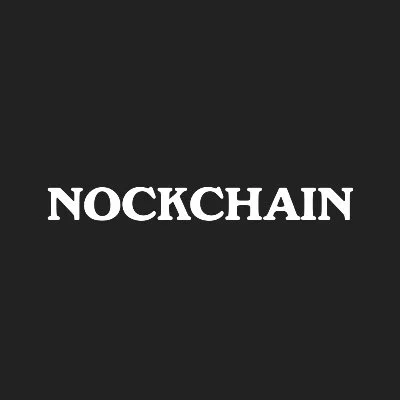Let's be real. Every few months, a new crypto project bursts onto the scene wrapped in the holy robes of "fairness" and "decentralization." They all sing the same gospel: "No pre-mine! No VC insiders! 100% for the community!" And every time, I see a line of hopefuls ready to fire up their dusty rigs, their eyes gleaming with the promise of a digital gold rush where the little guy finally wins.
This month's savior is called Nockchain.
It’s the talk of the town, listed among the Top Trending Cryptocurrencies Today on CoinGecko, with its price popping over 100% in a day. The mining forums are buzzing. I can almost hear the collective whir of ten-year-old CPUs spinning back to life in basements across the country. The pitch is, offcourse, perfect. A "proof-of-useful-work" chain where 100% of the $NOCK tokens are mined. No sweetheart deals for venture capitalists, no locked-up tokens for the "team." It’s a pure, unadulterated meritocracy.
Give me a break.
The project’s developer, ZorpZK, pocketed a cool $5 million in a seed round led by Delphi Ventures. So, my first question is a simple one: How does Delphi get its money back? Do we really believe they handed over $5 million out of the goodness of their hearts, with no expectation of a return? If there are truly "no VC shares," then what exactly did they buy? Are we playing some new, inventive semantic game with the definition of "share"? This ain't my first rodeo. When I see a VC firm's name attached to a project, the "fair launch for the people" narrative immediately starts to smell funny.
Okay, so let's dig into the tech for a second. Nockchain uses something called "zkPoW," or zero-knowledge proof of work. Instead of just crunching random hashes like Bitcoin, miners are solving complex ZKP puzzles. It sounds fancy, and maybe it is. It's supposed to enable high throughput while being verifiable. Great. Wonderful. I love buzzwords as much as the next guy.

But the real tell is their "progressive hardware compatibility" strategy. Right now, it's a CPU-mining game. This is the core of their "fairness" argument—anyone with a computer can participate. It's a beautiful, democratic vision. But in their own documents, they state they will "gradually transition to GPU and ASIC mining in the future."
This is a bad idea. No, "bad" doesn't cover it—this is a Trojan horse. It's like inviting everyone to a friendly neighborhood poker game where the buy-in is five bucks, but quietly telling the professional players in the back room that in six months, the table will be no-limit Texas Hold'em. The moment ASICs are on the table, the game is over for the CPU miners. It’s an admission that this decentralized utopia has a built-in expiration date. So, is this a genuine attempt at fairness, or is it just a clever user acquisition strategy to build a network on the backs of hobbyists before handing the keys over to industrial mining farms?
We saw how this movie ended with Aleo, another hyped-up project from the world of Top Zero Knowledge (ZK) Coins by Market Cap, that promised the world and ended up facing a full-blown miner revolt. They got the economics wrong and the community that built them up turned on them in a heartbeat. Nockchain claims it's learned from those mistakes by sticking to a traditional PoW distribution. But by dangling the ASIC carrot, are they just delaying the inevitable betrayal?
And let's not forget the regulatory angle. The SEC recently clarified that PoW mining isn't a securities offering. This is a green light for these projects. No, a "green light" is too simple—it's a regulatory get-out-of-jail-free card that allows them to launch these token schemes with minimal oversight. It’s the wild west all over again, and Nockchain is just the newest gunslinger in town promising to be the noble sheriff.
Everyone's dusting off their old rigs, hoping to catch a piece of this, and for what... a few months of "fair" mining before the big players arrive with their specialized hardware and price them out of existence? Then again, maybe I'm the crazy one here. Maybe this time it's different.
But history rarely rhymes; it just repeats itself. And in crypto, it repeats itself with alarming frequency. The project is open-source, which is a point in its favor, but the GitHub is still missing a crucial piece of the puzzle: a mining tutorial. It feels like they’ve built a car and told everyone how great the engine is, but haven't handed over the keys yet.
Look, I want to believe. I really do. I want to see a project that actually lives up to the decentralization dream. But when I see a $5 million seed round and a roadmap that explicitly plans for the inclusion of ASICs, the "100% fair distribution" slogan just feels like hollow marketing. It’s a great story, but I’ve learned to stop reading the cover and start looking for the fine print. And the fine print here suggests that the "community" is just the opening act for the real headliners waiting in the wings.